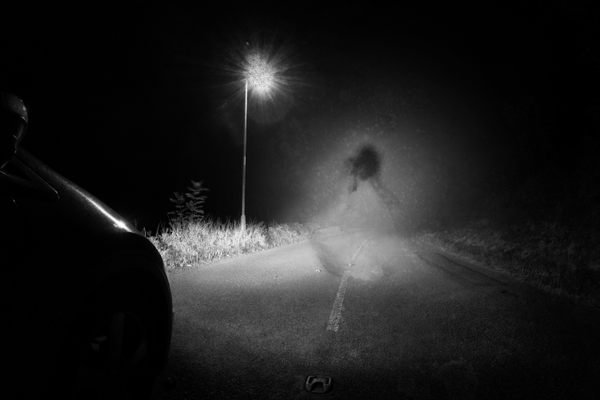Libby Tucker | Source | Professor of English, General Literature and Rhetoric at Binghamton Universit...

Libby Tucker
Libby Tucker is a distinguished professor of English, general literature and rhetoric at Binghamton University, State University of New York. She is an expert in children's/adolescents' folklore, folklore of the supernatural and digital folklore.
-

Binghamton University, State University of New York
Professor of English, General Literature and Rhetoric
-
The Vanishing Hitchhiker Legend Is an Ancient Tale That Keeps Evolving
The classic creepy story—a driver offers a lift to a stranger who is not of this world—has deep roots and a long reach.
Article -
Squaring the Strange: Episode 217 - Dark Play with Libby Tucker on Apple Podcasts
Show Squaring the Strange, Ep Episode 217 - Dark Play with Libby Tucker - Dec 28, 2023
Podcast -
Think of the Children (Halloween Sadism & Internet Challenges) — Digital Folklore
After MEMExpo, the crew reconvenes to find Digby in a state of absolute chaos. He has absorbed every conspiracy he could find, and linked it all back to a pipeline starting with tainted Halloween candy. In an effort to convince Digby that he is being ridiculous, Perry and Mason decide to do some res
Article
-
Expert: Halloween costumes reflect cultural questions and worries
Halloween costumes reflect cultural questions and worries, according to Libby Tucker, a folklorist and professor at Binghamton University, State University of New York.
“On Halloween, many American children and adults enjoy wearing costumes. For folklorists like me, the material culture of Halloween is an important component of the festival,” said Tucker. “The types of costumes that are sold in stores such as Spirit Halloween express cultural questions and worries.”
This year's costumes include an array of Venetian plague doctor masks, reflecting people's awareness of the COVID-19 pandemic. Costumes related to movies such as Trick r Treat and Barbie show how much the media influences people's perception. During the "great clown panic" of 2016, clown masks and outfits caused enormous concern.
“It will be interesting to see what kids will wear this year, in the midst of worries about our government and wars overseas,” said Tucker.
-
Expect more mischief and pranks this Halloween
With large gatherings and lockdowns in many places due to COVID-19, Halloween might be filled with more mischief than normal due to high stress levels, according to Libby Tucker, folklorist at Binghamton University, State University of New York.
This year people are worrying less about candy than about COVID-19 contagion, says Tucker, author of Haunted Halls and Legend Tripping. Potentially, anyone opening a door to trick-or-treaters could share this deadly disease, which has caused more than 200,000 deaths since last winter.
“Although we do not know exactly what will happen, it seems likely that there will be less trick-or-treating and fewer Halloween parties,” said Tucker. “Part of Halloween's tradition involves mischief and pranks, such as "egging" a house and soaping windows. It seems likely that subversive behavior will increase this year, because stress levels among children and adults are high; probably some of this subversion will happen online.”



